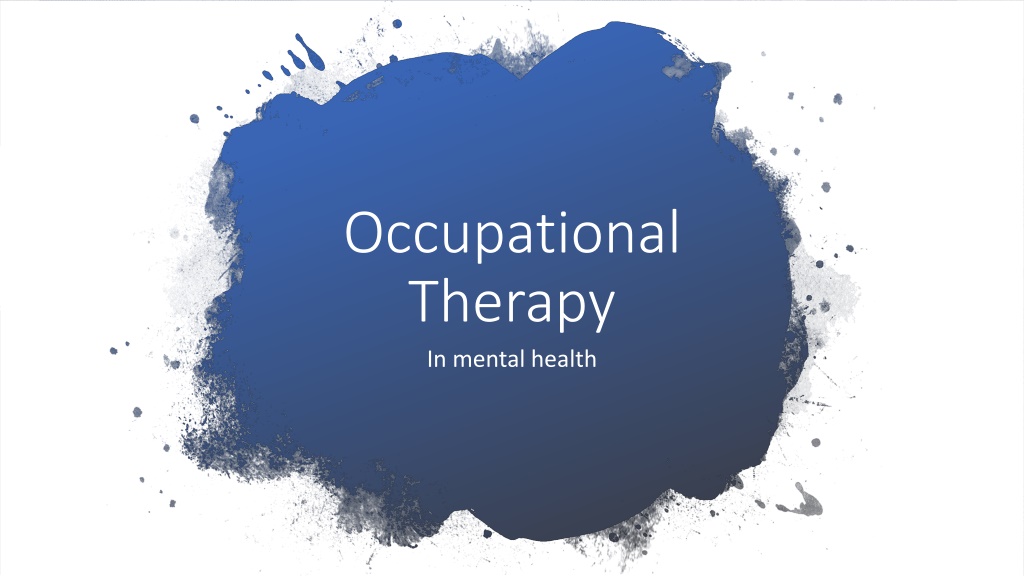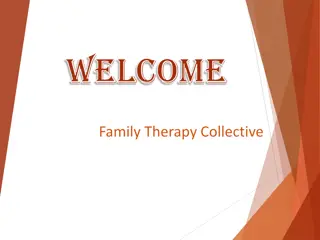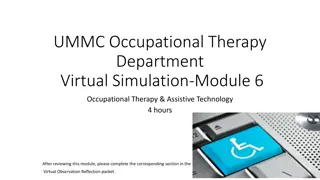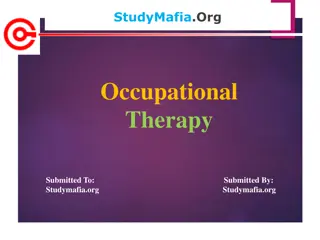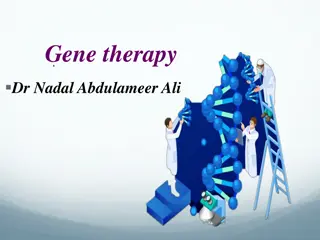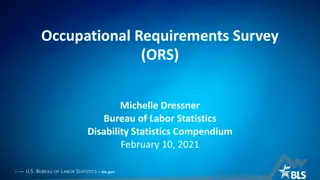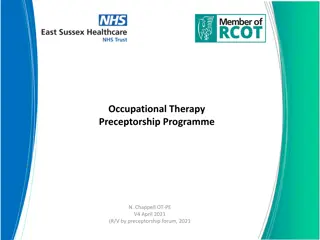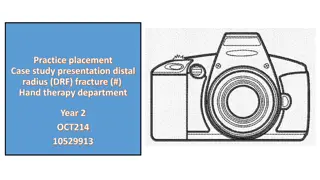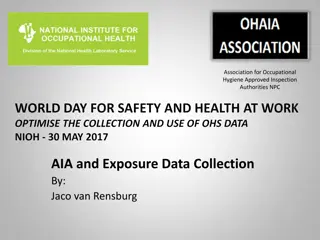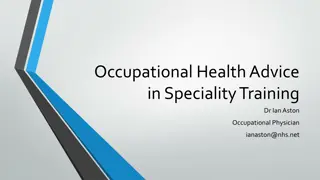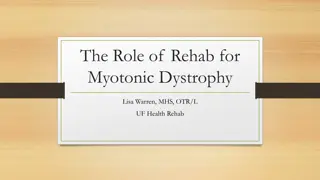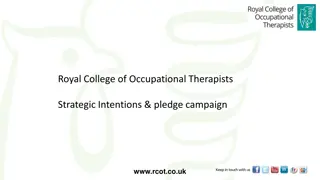Occupational Therapy in Mental Health
Occupational therapy empowers individuals to overcome barriers and engage in meaningful activities, promoting independence and satisfaction in all aspects of life. Occupational therapists focus on addressing physical, psychological, social, and environmental needs to help clients achieve renewed purpose and a positive outlook on the future.
Download Presentation

Please find below an Image/Link to download the presentation.
The content on the website is provided AS IS for your information and personal use only. It may not be sold, licensed, or shared on other websites without obtaining consent from the author.If you encounter any issues during the download, it is possible that the publisher has removed the file from their server.
You are allowed to download the files provided on this website for personal or commercial use, subject to the condition that they are used lawfully. All files are the property of their respective owners.
The content on the website is provided AS IS for your information and personal use only. It may not be sold, licensed, or shared on other websites without obtaining consent from the author.
E N D
Presentation Transcript
Occupational Therapy In mental health
Emily Johnson Occupational Therapist Rehab lead in the Recovery Team at Slough CMHT
Occupation "Occupation" refers to practical and purposeful activities that allow people to live independently and have a sense of identity. This could be essential day-to-day tasks such as self-care, work or leisure. Think about your day-to-day life; How would you cope or live fully if you were unable to get out of bed in the morning?
What is Occupational Therapy? Occupational therapy provides practical support to empower people to facilitate recovery and overcome barriers preventing them from doing the activities (or occupations) that matter to them. This support increases people's independence and satisfaction in all aspects of life.
What do OTs do? An occupational therapist's job role is to help people of all ages overcome the effects of disability caused by illness, ageing or accident so that they can carry out everyday tasks or occupations. An occupational therapist will consider all of the patient s needs - physical, psychological, social and environmental. This support can make a real difference giving people a renewed sense of purpose, opening up new horizons, and changing the way they feel about the future.
knowledge of injury and illness, understanding of psych-social aspects of disability, knowledge of the rehabilitation system, ability to analyze tasks ability to creatively adapt the physical environment What makes OT unique? We use all of the above to identify the barriers to someone engaging or doing something for themselves independently and then make a plan with the client of how to work towards this
Person centred all intervention and support is tailored towards what THEY want Holistic (looks at the whole person, not just their mental health needs) Enable Empower Educate Collaborate Advocate Strengths focused It s all about empowering loved ones to take control of their lives and be as independent as possible What makes OT unique?
OT in mental health how can it help? Occupational therapists help people to develop a personally satisfying routine of everyday activities that creates a sense of purpose and enhances the person's recovery journey. They will: Help people improve their self-care, e.g. by supporting them to learn how to use washing machines or to cook for themselves Help people manage their money by learning budgeting skills and how to use banks Help to build a balanced routine Support people to live independently by providing systems to assist in dealing with, for example, mail and bills or negotiating with neighbours Work with people to identify and improve work skills, apply for jobs and stay in employment Help people to access and use mainstream leisure activities Provide advice on how much assistance a person may need to live independently in the long-term
My loved one has been referred for an OT assessment what s next? 1. OT will make an appointment usually for a home visit as we like to see loved ones in their familiar environment (have you ever tried to find a spoon/cup in someone else s house?!) 2. OT will attend and ask about the support you provide for the person you are caring for and ask your loved one questions about how they manage day to day. 3. Your loved one will be asked to demonstrate a task they would normally complete day to day 4. OT will then make recommendations of best way you and/or your loved one can be supported
Whilst taking a holistic view, Occupational Therapy isnt for EVERYONE Your loved one MUST be motivated to work with us or at least to engage with OT so that we can support them to work towards the change they would like to make We can t ever force anyone to do something they don t want to do Note!
Progress over 8 months Found volunteering role Completely independent in cooking/shopping/laundry/cleaning/mone y management, some support still required to make healthy choices and consider purchases before making them Progressing towards independence with medication Case Study Mrs B
Case Study Progress over 2 years Is now attending New Horizons independently for depot medication weekly Engaging in some sessions and able to engage for longer (key working/OT) With prompting and support able to complete cleaning and laundry tasks Has sought out support to complete cooking Mr A diagnosis of paranoid schizophrenia
It takes time Changes can seem very small but are often huge for your loved one e.g. having a shower consistently, making a hot drink, being able to cook for themselves. Everyone s journey is different. Important things to note
